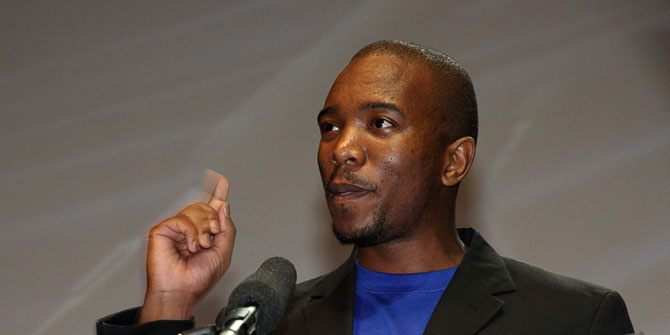Katherine Wall argues that a redefining of democracy is necessary in our increasingly interconnected planet. This post originally appeared on Global Policy.
The idea of popular sovereignty is being significantly undermined in an increasingly interdependent world. Forces from beyond the borders of the state affect the citizens of that state. From the global market to climate change, nation-states can no longer act unilaterally to determine policy outcomes of their own choosing. Decisions taken within states also affect those outside it. Take the example of Spain building a nuclear power plant near its border with France. People, who have no control over Spanish policy, will be significantly affected by this policy decision yet have no means of reproach. Supra-national institutions are also now able to make decisions limiting state sovereignty and requiring certain state action.
At the heart of democracy is the belief in the importance of autonomy: of individuals being able to self-direct their own lives, have a say in the decisions which affect them and their community, and live peacefully with others in a society in which there are competing concerns. Throughout the majority of its history, democracy has been understood within the geographical confines of a given territory from the city-state to the nation-state. Popular sovereignty, the rule of the people within certain boundaries, over their future and the principles which should govern their lives, remains of fundamental importance to current understandings of democratic government.
Yet, if a population of a given state is no longer fully capable of self-determination, of acting independently of the interference of those from outside its borders, the validity of democracy in its current form may be in need of substantial alteration. If the forces of globalization affect the lives of citizens across the world, state-bound representative democracy will be insufficient to hold these forces to account. As David Held has stated ‘globalization denotes a shift in the spatial form of human organization and activity to transcontinental or interregional patterns of activity, interaction and the exercise of power’. If we still believe that having a say in the decisions that effect our lives is important, if self-rule of a democratic variety is of value, then we must find a way of rethinking democracy. Of making democracy relevant to our interdependent world.
There are two key areas of development which are necessary to the ‘scaling-up’ of democracy to the regional and global levels which are inherent to the very nature of democracy itself. The first is looking at mechanisms of global accountability and the second is looking at ways creating an active, involved and participatory citizenry which can determine its collective and individual lives in a global society.
In a state representative democracy, power is passed from the people, through elections, to their representatives. To ensure that those individuals who hold the power keep their manifesto pledges, do not abuse the power entrusted to them, and act in the interests of those who placed them there, a variety of accountability mechanisms have been developed within domestic systems of government. These include free press coverage of parliamentary/presidential actions, the judicial system, questions to members of government, campaigns, and protest. If, however, decision-making is taking place both within the state and beyond it, looking at who has power, what they do with it, and how it can be held to account is essential. In 21st century multi-national corporations, international organisations, and global forces all operate in ways which constrain the power of states to fully represent the interests of their citizens. Therefore we must explore new means of holding these organisations to account.
Self-determination also requires the active participation of members of a community to demand change, to pressure those in power, to organize. Movements are already organizing across borders. The global solidarity of the Occupy Movement, of strikes occurring across Europe against austerity, and the actions of global civil society on issues such as climate change, demonstrate an increasing awareness about the nature of politics, power and decision-making today. Further examples of active participation beyond the nation-state to influence those in power and to enable us to self-direct our own lives, include a range of activities from escalating campaigns from the national to the regional or global level, identifying the bodies which hold the power to affect change and targeting them, through to the creation of new institutions at the regional and global level to enable more effective participation.
One of the main limitations of the current global order is that it gives some a much greater voice than others. For example the US has nearly 16% of the votes at the World Bank, when it has just under 5% of the global population within its borders. If each person on the planet is of equal moral worth, then having an equal say in the decisions which affect each of our lives seems to be a logical conclusion. The very conclusion of democracy itself. If we are to secure the autonomy of each in a society of all we should demand a major restructuring of global institutions. But I will save exploring that topic for another day.
In a world in which the nation-state is no longer (if it ever was) the sovereign entity governing the lives of its citizens, the concept of democracy as it is currently understood looses much of its potency. Globalization is happening at a faster rate than ever before. Actions of those beyond the borders of a given territory have a far-reaching impact. If we truly want people to be able to govern themselves, to have a say in the decisions which affect their lives, then democracy itself must be rethought and reformed. At the heart of this new reformation lies the development of both accountability mechanisms of regional and global power bases and the activation of a global civil society to demand change and social justice. The next question is how to achieve this.





